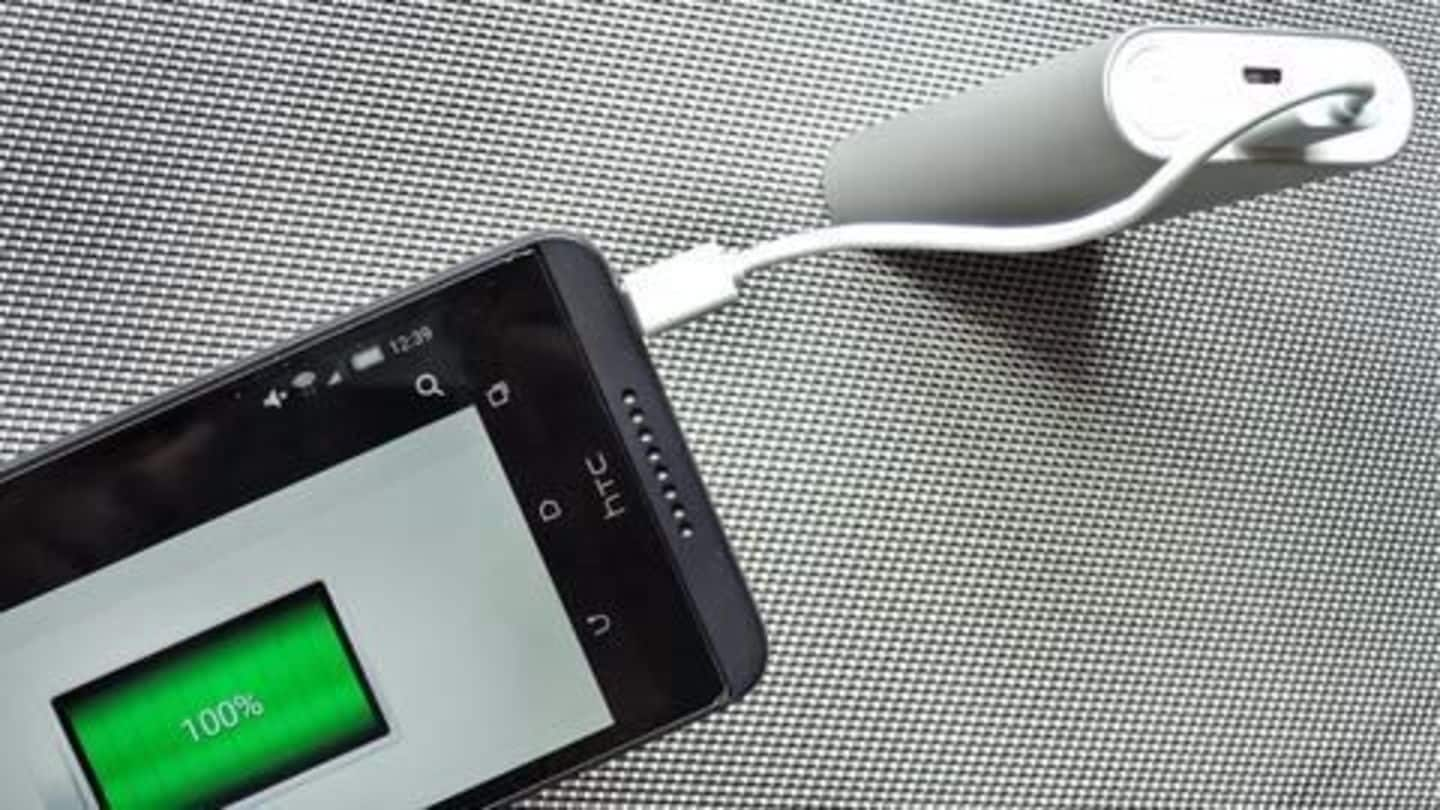
These smartphones' batteries charge in flat 5 minutes!
What's the story
Our phones may be smart but they also run out of juice pretty soon, so when Israeli start-up StoreDot demonstrated that its FlashBattery has the capability to recharge 100% within 5 minutes, it created quite the buzz. Now, the firm says, it is ready to enter production next year to make the product available to consumers. Here' all that you need to know.
Unavailable
Not for the currently available smartphones
CEO Doron Myersdorf told BBC that it was a brand new type of battery, which contains uniquely synthesized organic molecules. The quick charging technology was first revealed in 2015 CES tech show in Las Vegas, gaining major attention from the tech world. However, these batteries will not be a fit for the currently available phones, as the high voltage will fry their circuits.
5 minutes
Next year, no more battery worries
Chief executive Doron Myersdorf said, "We have reactions in the battery that are non-traditional reactions that allow us to charge very fast, moving ions from an anode to a cathode at a speed that was not possible before we had these materials." It is currently in pilot production with two Asian battery makers and it "will charge a smartphone in five minutes" soon.
Solar
What if batteries could charge themselves?
Smartphone batteries are a universal problem, so what is better than fast charging? Well, it would be great if the battery could charge itself. That might just be possible, as scientists are also on the verge of developing self-charging batteries that would charge themselves automatically with solar energy; no wires, no looking for sockets - just maybe a little bit of more outdoor activities.
Science
Science behind the concept
A battery has two aspects - the cathode absorbs energy and anode stores it. Andrea Paolella, researcher at Hydro-Quebec in Canada, said that their team "was able to simulate a charging process using light as a source of energy." Now what the team needs to devise is the storage component, which would store this energy and volia! We would have 100% self-charging lithium-ion battery.
India
Recommendations and a shift in demand
According to an International Data Corporation study, comprising of 4,000 buyers across 10 cities, Indian buyers still depend mainly on peer and retailer recommendations for purchasing a value-for-money device with the latest technology. Moreover, smartphone demand, in tier 2 and 3 cities, is higher than the now saturated tier 1 cities. The adoption of this new technology might be slow in Indian markets.